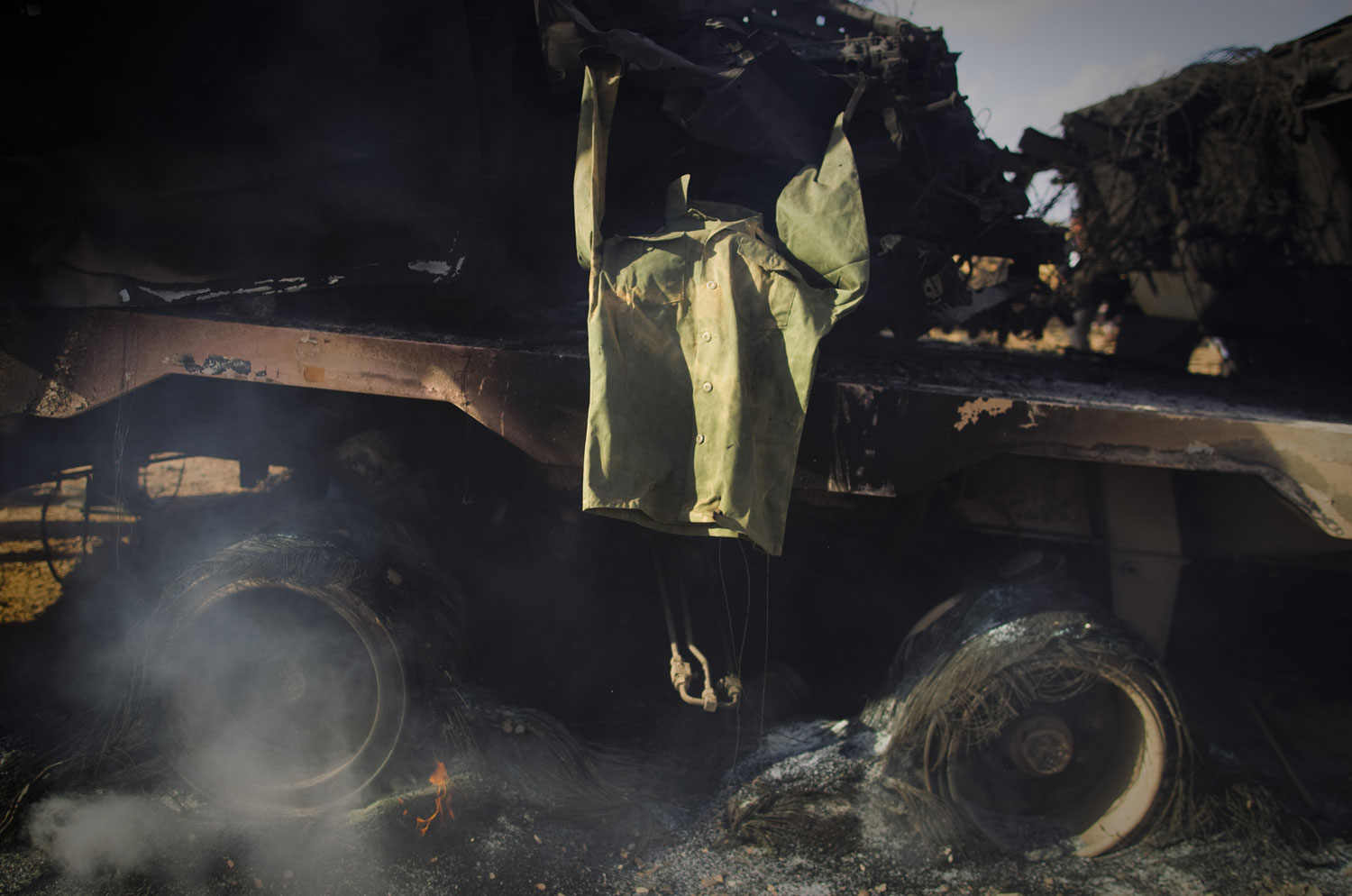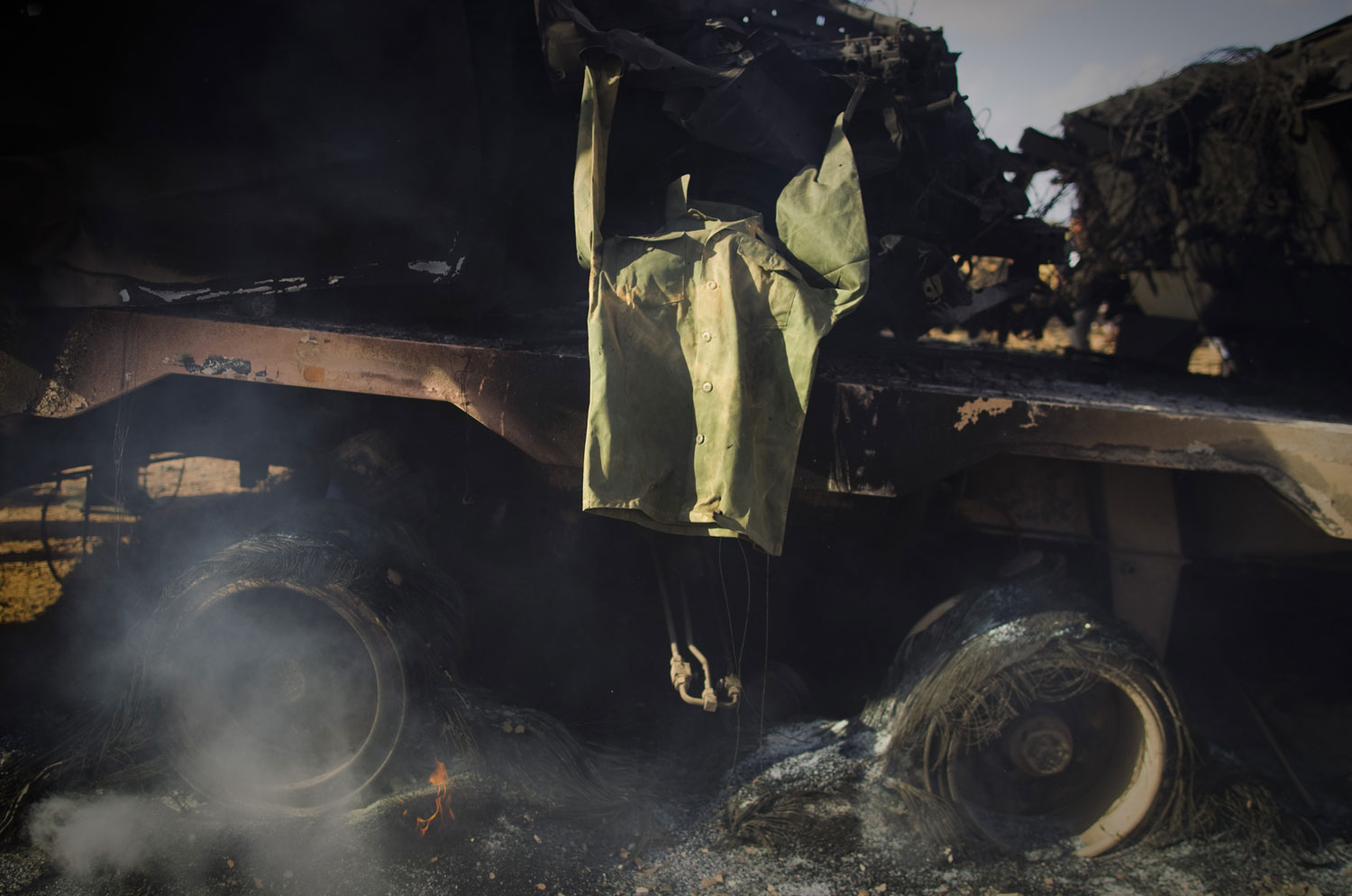
Associated Press photographer Anja Niedringhaus had been on assignment in Benghazi, Libya, for two weeks. On March 19 she was forced to flee when Muammar Gaddafi’s troops entered the city. While most journalists fled Benghazi entirely, Niedringhaus and her AP colleagues flagged down a rebel car and were taken to a family house in the city’s center. As the men were out in the streets fighting, the women stayed home. They cried and prayed and urged the journalists to get their message out so the world would know what was happening.
Niedringhaus knew that on that day, there would be a meeting in Paris to determine whether the West would attack Libya. But she was getting nervous as she contacted the AP’s Cairo office, only to be told that the politicians were having a lunch break followed by a group photo.
“You would not believe how much I was hoping [for] air strikes because I was very sure that we would get picked up by Gaddafi’s forces,” Niedringhaus said. But within a couple of hours, the photographer said, she heard the beginnings of the attack: “We heard a plane in the air, followed by a loud explosion, and I realized air strikes had started.” Just before sunset, Gaddafi’s assault on the city came to a halt. The allied air strike had destroyed a column of tanks from Gaddafi’s forces that had been approaching Benghazi.
The following day, Niedringhaus went to witness the air strike’s fallout. “I saw from a distance the burned-out and smoldering wreckages, with Libyan people standing on top of them, celebrating and flashing the victory sign. It was a strange scenario, with Libyans shooting in celebration in the air, taking pictures of themselves in front of the tanks with cell phones, and praying next to the wreckage. Army uniforms from Gaddafi’s troops were scattered about on the ground. In all that mess I found a soldier’s jacket hanging from a burning military vehicle.”
Niedringhaus said she believes it had belonged to a dead Gaddafi soldier because there were no reports that any soldiers survived. “It caught my attention immediately,” she said, “because it looked like a soldier was tied up on the wreckage or laundry, which was put out to dry.”

More Must-Reads from TIME
- Donald Trump Is TIME's 2024 Person of the Year
- TIME’s Top 10 Photos of 2024
- Why Gen Z Is Drinking Less
- The Best Movies About Cooking
- Why Is Anxiety Worse at Night?
- A Head-to-Toe Guide to Treating Dry Skin
- Why Street Cats Are Taking Over Urban Neighborhoods
- Column: Jimmy Carter’s Global Legacy Was Moral Clarity
Contact us at letters@time.com